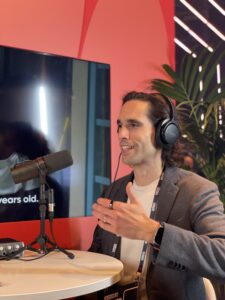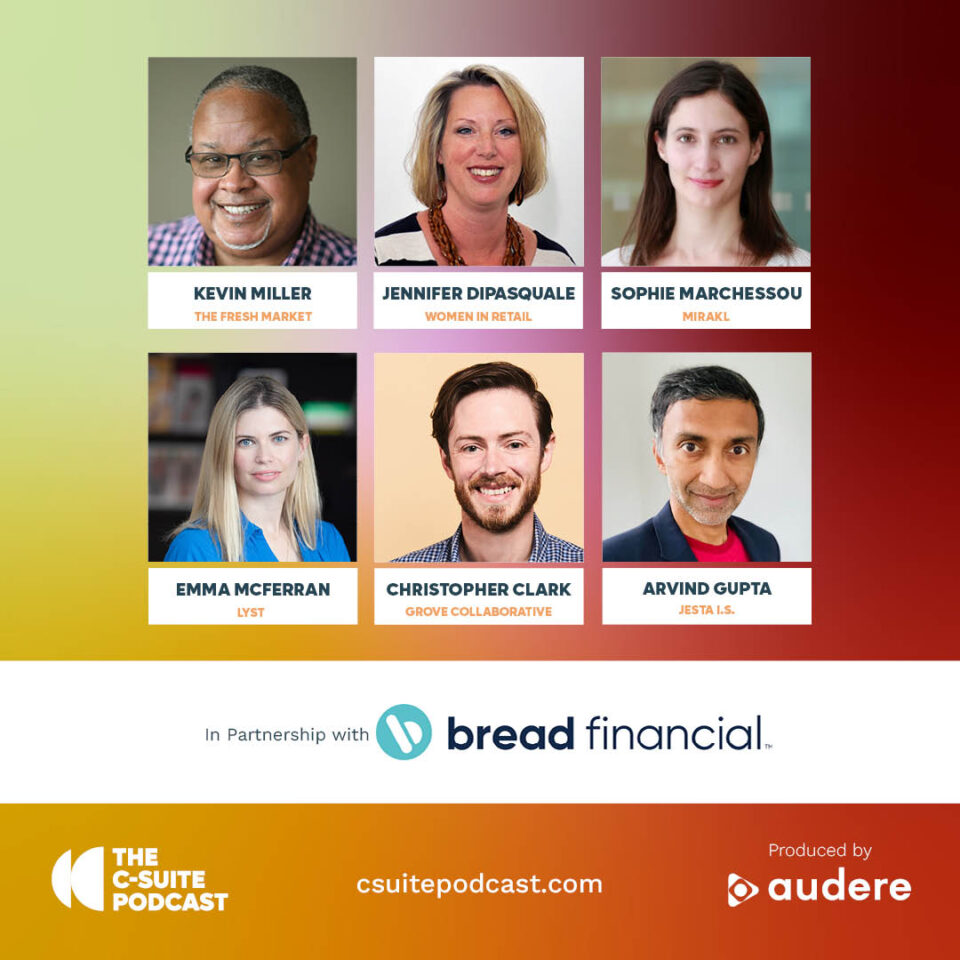
Marcelo Lebre the President & Co-Founder at Remote in his interview
Marcelo Lebre, President & Co-Founder, Remote
Founder Marcelo stated there are 1200 employees across the world at Remote, which was founded back in 2019. He says it feels like two days but also 20 years. When they began it was one product and a few countries, now they are all over the world with lots of products. By following the journey of their customers, it allowed them to follow by building things that are needed because in Remote’s industry, many things are outdated so it is refreshing and rewarding for them to keep building to meet the changing needs of their customers.
Marcelo highlighted they have embraced a remote culture from day one and therefore he is very knowledgeable on managing distributed teams and helps others understand how to go about this. He said Remote get to see by working with their customers and partners the turning point in this topic, the upsides, the downsides and different use cases. Marcelo said to retain the best talent within an organization is to build a great working space and culture which comes from addressing the basic needs of the people. Not to create a family, a job is a job, despite Marcelo the co-founder, viewing Remote as his second child.
Marcelo said there are different models to consider when compensating Remote employees fairly which can change with the size of the organization and how they are anchored. He mentioned you must make sure you are respecting pay equity and you are not paying two people differently that are doing the same job, no matter who they are, what they believe in, and what they look like. Another way to compensate is a mix where you define bands and follow the world and decide based on the country and market and whether to be competitive, beat the market or be on the market. Marcelo then revealed that building and shipping are the priorities for Remote despite them being a sizeable company, each day is treated as day one and there is always lots to build and bring to market.

Anna Gullstrand, Chief People & Culture Officer at Mentimeter speaking to episode host Graham
Anna Gullstrand, Chief People & Culture Officer, Mentimeter
Anna highlighted that the founders of Mentimeter worked in normal jobs and recognized that in meetings the intelligence of most of the people in the room, was not used, it was just leaders talking at them. So their mission was how can they engage people in meetings and make them inclusive. Therefore Mentimeter is an interactive tool that can be used in presentations, meetings and training, giving power back to the people in the room, they are interacting, giving input, voting, asking questions.
Mentimeter started in Stockholm then Toronto and are now open in Sydney due to having global customers and they wanted to support these different time zones. Anna said in 3 years the number of employees has risen from 60 to 350, which is fast growth and a challenge of this is maintaining the ways of working and the core values of the organisation. They don’t believe in rigid structures or policies but they do believe in clear principles and values which enables faster decision making. The first core value at Mentimeter is to include everyone and be humble, in line with their product as it inhibits performing co-workers, feeling safe, feel seen, heard and respected. Work smart instead of hard, only 40 hours means employees need to be smart about how they spend their time, where will it have the highest impact.
Anna said they look at employer branding the same as you would product-led growth which is about putting all the resources into the product and making it as good as possible so it spreads like wildfire. Mentimeter puts money and resources into great employee experiences so people can spend time together as teams, and therefore group development happens. Anna mentioned how years ago it was all about efficiency and it still is but the whole world is in a paradigm shift of how they view leadership and culture within an organisation. There is more emphasis on engagement, motivation, and psychological safety.

Speaking to Anastasija Plotnikova, CEO & Founder, Fideum Group
Anastasija Plotnikova, CEO & Founder, Fideum Group
Ana revealed the latest for Fideum Group – they have just recently won the first-ever Web3 company in the Mastercard Lighthouse Program. The program began 4 months prior and it is a partnership where Mastercard brings fintech and scale-ups to deliver their products and their banking partners products. So for Fideum as a Web3 company, it brings them a new stream of revenue and work with banking institutions.
Fideum group began as a retail application and after making $12 net profit they realised that they needed a new idea. So they built a modular infrastructure that allows them to regulate and be compliant for different jurisdictions in which they operate and they shifted to servicing B2B businesses like other Web3 companies and then they progressed and started service credit unions, small to medium enterprises, development companies and financial institutions.
She said that recruitment was a pain point for the company as they did over hire then they learnt the hard way that is not how to do it. But currently they are over a 50% female identified company by accident which purely happened through there hiring strategy that involved only interview questions and coding tasks – no gender or name was asked and the bias was gone straight away. Ana admitted she was lucky because she has supportive people around her allowing her to be successful in the industry, but she doesn’t want to leave this up for a chance for other people. Ana said there are many talented females in the industry that need to come out of hiding and show their faces.
Ana said the biggest challenge for Fideum Group is the very fractioned legal infrastructure. For example, the UK has a different set of rules to the European Union, to Canada to Australia etc. Ana said she’s excited to see what happens as a result of them being the winners of the Mastercard Lighthouse as they are on the path to becoming Mastercard’s global technology partner and provider.

Speaking to Rahul Vohra the CEO of Superhuman in a Slush podcast booth
Rahul Vohra, CEO, Superhuman
Superhuman is the fastest email experience in the world. Their customers get through their email about twice as fast as before. They reply to important messages up to a whole business day sooner. They save four hours or more every single week and many of them see Inbox Zero for the first time in years. After a revelation in an Uber journey that resulted in Rahul realizing the magic of Uber is not about transportation but about giving time back to an individual, he then used this to spur on his idea. He said there are roughly 1 billion professionals in the world, and on average, these people spend three hours a day reading and writing emails. That’s 3,000,000,000 hours every single day and it’s over 1,000,000,000,000 hours a year.
They set out to build the experience of the fastest email experience in the world. It aims to give you those 4 hours back every week for example by a feature in the product which is called split box so you split out all emails from particular recipients so certain emails do not get buried or missed. The biggest change that has happened within the organization is from a product that was focused on single-player prosumer use, to multi-player use inside of corporations and enterprises, and over the last two years there has been an eightfold increase in the number of teams using Superhuman.
Many of Superhuman’s customers are international roughly a third of their customer base and a third of their revenue is international. One example which posed a challenge was creating a subscription billing service in India. Rahul said showing people you are in the process of solving a problem and delighting your customers is how you get the best talent. Rahul mentioned that Superhuman has lots in the pipeline and they are currently working on a set of AI features, it can create an email based of a few of someone’s and it will be in the certain tone of that person. Rahul said imagine if you could wake up to your inbox and have it with email drafts pre-written for you, it sounds like science fiction but they are kind of there.

Arūnas Eitutis, CEO, Frontu on the show
Arūnas Eitutis, CEO, Frontu
Frontu is 10 years old this year, and the idea came from the customers themselves which is field service management. If a tractor is stuck in a field a technician comes to fix this tractor and logs all the work on the app and takes signatures to help their dealers with maintenance. This year they made integration with the biggest heavy machinery manufacturers. This means for farmers and dealers that if the tractor is stuck in the field, there is no additional hardware included, Frontu knows where the technician is and they know where the tractor is, in the field and they can then create the order to fix it. He said in the future people will pay subscriptions not for the boiler or AC, but for the temperature at their home and if something is broken that they may not even know about a technician will come and fix it. He said there is this technology already, but the ecosystem is not ready.
Frontu operates in many states as it saw opportunities as it grew, it also educates how to operate and then operates in countries that are not educated enough. They operate in the Baltics and Romania, Croatia, and Poland, they wish to expand into Germany and West Europe. They have customers in 15 countries and employees in 4 different countries who work remotely, and they do have an office in Lithuania. Arūnas said they fly to expos in countries to hire so they can get a feel for the culture and understand the country.









